Complete The Form To Start Your AUC Journey Today
0+
Alumni Network Worldwide
0%
1st-time residency attainment rate for 2022-2023 grads*
*First-time residency attainment rate is the percent of students attaining a 2023-24 residency position out of all graduates or expected graduates in 2022-23 who were active applicants in the 2023 NRMP match or who attained a residency position outside the NRMP match.
0%
USMLE 1st-time Step 1 Pass Rate from 2018-2022**
**First-time pass rate is the number of students passing the USMLE Step 1 exam on the first attempt divided by the number of students whose first attempt was in 2018-2022. In order to sit for the USMLE Step 1 exam students must successfully complete the Medical Sciences curriculum.
0%
USMLE 1st-time Step 2 Pass Rate from 2018-2022***
***First-time pass rate is the number of students passing the USMLE Step 2 CK exam on the first attempt divided by the number of students whose first attempt was in 2017-21. In order to sit for the exam students must earn an acceptable score on the NBME CCSE as listed in the catalog.
0%
of students received institutional grants and scholarships in 2021
$0K+
the average institutional grant/scholarship amount for the 2020-2021 academic year
0%
of students in the 2020-2021 academic year received some form of financial aid
MEET OUR GRADS
Get to Know
Dr. Rebecca Gerrity, MD, '19
Get to Know
Dr. Vicken S. Zeitjian MD, '16
Get to Know
Dr. Frosso Adamakos, MD '13
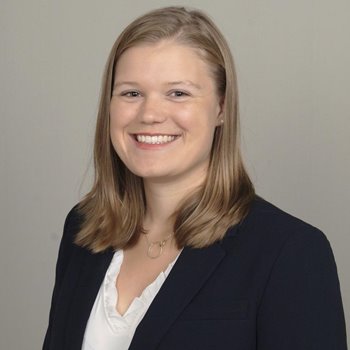
Dr. Rebecca Gerrity, MD
Q: Why did you decide to go into your specialty?
Dr. Gerrity, Internal-Pediatric Medicine: I had a few experiences in medical school which made me realize that my passion in medicine lay in helping individuals in low-middle-income countries/ counties in the United States. Internal medicine and pediatrics was absolutely the right choice for me as it allows me comprehensive training in a wide spectrum of disease states/ presentations across all ages.
Q: Any advice to medical students considering the specialty?
Dr. Gerrity, Internal-Pediatric Medicine: Use all your resources and reach out to alumni. I was so lucky to have an early introduction to Dr. Desai who visited SXM [the code for St. Maarten airport, and a common way to refer to St. Maarten itself] early in my second year of medical school. Dr. Desai completed a residency in MedPeds and introduced me to the idea and I am forever grateful to him! I also was able to speak with numerous AUC MedPeds alumni via email and this led me to further understand the vast opportunities allotted to MedPeds physicians. The resources that AUC has to offer through OCA [AUC's Office of Career Advisement] are incredible.
Q: What’s the most rewarding part of your job?
Dr. Gerrity, Internal-Pediatric Medicine: The patients and the physicians I work with make my job the best job in the world! I relish the humbling opportunity to treat patients and communicate with their families. Developing relationships with patients, understanding what makes them happy, who they love, and what their hopes are for when they are better is what makes this job rewarding.
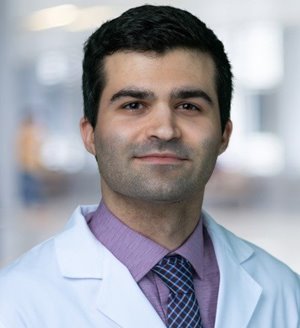
Dr. Vicken S. Zeitjian MD, '16
Q: Why did you decide to go into your specialty?
Dr. Zeitjian, Cardiologist: I chose cardiology due to its clinically diverse and multi-faceted nature. Cardiology is closely associated with all organ systems and requires a strong internal medicine background for comprehensive care. As a cardiologist, one will become an expert in hemodynamics, vascular anatomy, electrocardiography, primary prevention, cardiopulmonary resuscitation, imaging, and if desired, invasive management.
Q: Any advice to medical students considering the specialty?
Dr. Zeitjian, Cardiologist: Choosing a specialty is difficult. Start thinking about potential specialties early on, even during the first two years of medical school. Interest groups and clubs may be valuable. Also, I recommend getting in touch with recent alumni in the field who will provide guidance on the journey to fellowship. Consider an elective rotation in cardiology to get a better understanding of the various disciplines within the field.
Q: What’s the most rewarding part of your job?
Dr. Zeitjian, Cardiologist: The most rewarding part of cardiology is providing comprehensive care to medically complex patients. Heart disease often presents lifestyle limiting symptoms and is the most common cause of death in the United States; providing treatment to this population of patients is both challenging and gratifying. The extraordinary impact that a cardiologist has is seen both in the acute inpatient setting in critically ill patients and in the outpatient setting in the chronically ill patients who require close follow-up and preventative care.
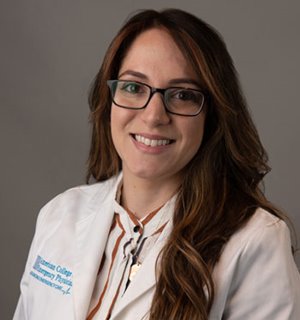
Dr. Frosso Adamakos, MD '13
Q: Why did you decide to go into your specialty?
Dr. Frosso Adamakos, Vice Chair of Emergency Medicine Education and Faculty Development: My emergency medicine rotation was the one where I felt like I really fit in with the residents, and it didn't feel like a chore to study. It was fun to learn about each of my patients. We love the controlled chaos of the emergency department and most of us would say that when we were medical students we loved every rotation which is how we also knew emergency medicine was for us. Because you will see everything in emergency medicine from an ankle sprain, to an elderly lady with a urinary tract infection, to a traumatic cardiac arrest. Find the specialty that you will love to wake up to everyday.
Q: Any advice to medical students considering the specialty?
Dr. Frosso Adamakos, Vice Chair of Emergency Medicine Education and Faculty Development: Lots! Seek mentorship opportunities early to help you become the most competitive applicant. Focus on your Step 1 and Step 2 [United States Medical Licensing Examinations] and above all other things excel at those. Make connections early whenever you can as a lot of medicine is who you know and random opportunities that can help you get to your dream job (right place at right time). Really consider why you love the specialty and consider what is great about it and what is tough about it.
Q: What’s the most rewarding part of your job?
Dr. Frosso Adamakos, Vice Chair of Emergency Medicine Education and Faculty Development: As cliché as it sounds, I love that I truly get to help people everyday. Even for the most benign chief complaint, you can really impact a patient's life. Not only do I get to do the fancy "life saving procedures", but I can hold a patient's hand while they are dying and provide them comfort. I can teach an uncontrolled diabetic about how to take their medications as prescribed when they may not have had someone take the time to do this in terms they've understood. I can help women who are struggling with domestic violence. I can teach parents about which asthma pump to use when and how they can avoid their child struggling to breathe. The opportunities are endless and I feel privileged to be in this position today.

40+ YEAR LEGACY OF MEDICAL EDUCATION
AUC School of Medicine is one of the most established international medical schools in the Caribbean. Since 1978 has been providing international medical school graduates to global healthcare. Our alumni network now exceeds 7,500 graduates.
ACCREDITED MD INSTITUTION

*American University of the Caribbean School of Medicine is accredited by the Accreditation Commission on Colleges of Medicine (ACCM, www.accredmed.org), which is the accreditor used by the country of St. Maarten.
GLOBAL CLINICAL NETWORK

ONE-ON-ONE DEDICATED SUPPORT

A STRONG FOCUS ON SOCIAL ACCOUNTABILITY

MEDICAL EDUCATION READINESS PROGRAM (MERP)
MERP is a 15-week online program designed to prepare promising applicants for success in medical school. MERP focuses on strengthening core academic areas with an emphasis on basic sciences. This program focuses on small group learning and study techniques. Students who successfully complete the program matriculate into the next first semester MD class.

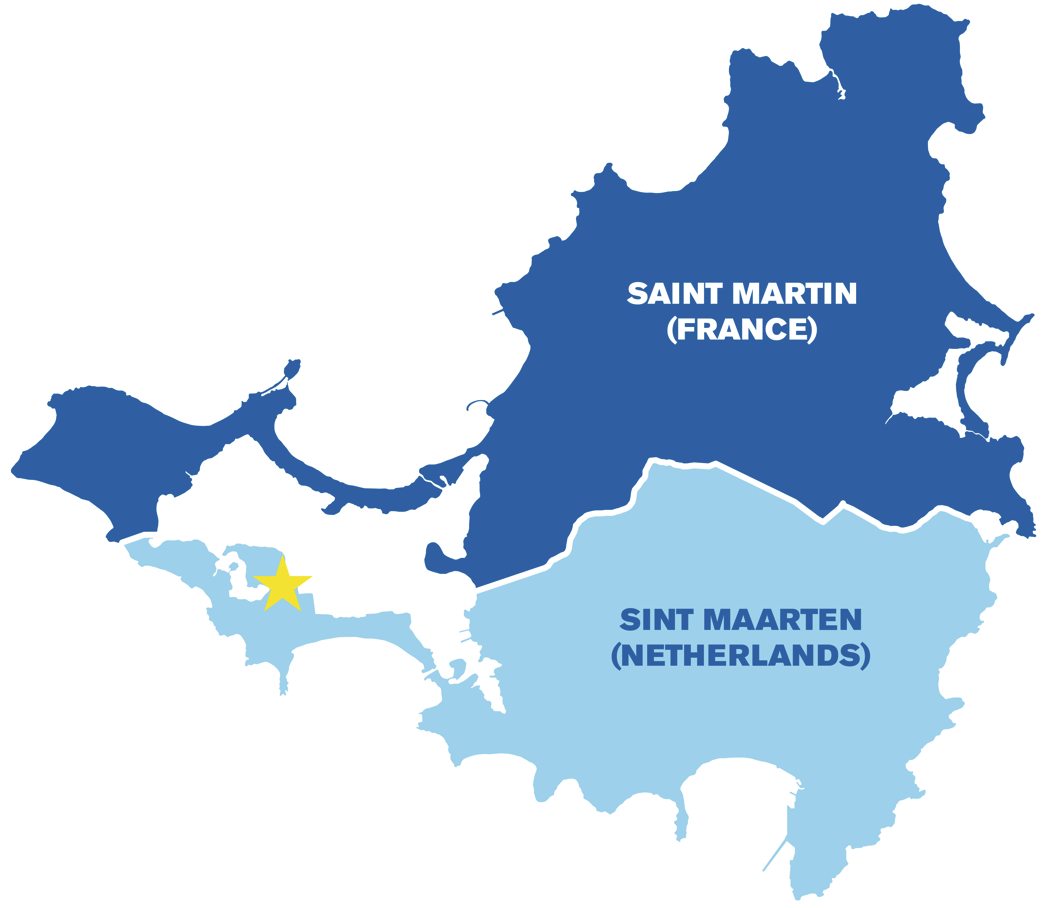
Explore Our Campus

Discover what it's like to study at AUC!
- 110 different nationalities represented
- Smallest island in the world shared by two sovereign powers
- Saint Martin: French
- Sint Maarten: Dutch
- Population of island 82,085
- 42,846 on Dutch side
- English is widely spoken
- US dollars are regularly accepted
- Beaches for all tastes: swimming, snorkeling or simply relaxing and enjoying the view
- The island's average year round temperature is 80°F
Explore Our Campus
.png?v=09142023164305)
Tip 2
Tip 3
St. Maarten Island
Tip 5
Discover what it's like to study at AUC!
Explore our state-of-the art campus facility and the wonderful neighborhood surrounding our beautiful campus. Join us on this self guided 360 degree virtual tour.
.png?v=09142023164305)
Tip 2
Tip 3
St. Maarten Island
Tip 5
On-campus: location, location, location!
Convenience is a prime benefit to living on-campus.
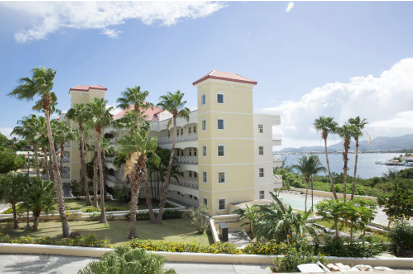
.png?v=09142023164305)
Tip 2
Tip 3
St. Maarten Island
Tip 5
Tip 2
Lorem ipsum
.png?v=09142023164305)
Tip 2
Tip 3
St. Maarten Island
Tip 5
Tip 3
Lorem ipsum
.png?v=09142023164305)
Tip 2
Tip 3
St. Maarten Island
Tip 5
St. Maarten Island
St. Maarten is an island in the Caribbean encompassing 37 square miles and located approximately 150 miles from Puerto Rico.
The island is shared by the governments of France and the Netherlands Antilles, with the AUC medical school campus located on the Dutch side.
Although English is spoken everywhere on St. Maarten and the U.S. dollar is an accepted currency, the island as a whole retains many elements of its French and Dutch culture and heritage. St. Maarten’s central mountain range is complemented by pristine beaches, winding mountain roads, and small villages.
.png?v=09142023164305)
Tip 2
Tip 3
St. Maarten Island
Tip 5
Tip 5
Lorem ipsum
-f2c3f51fd29fc1dcad20cf1d77708475dad60be9.png?v=04092021032403)
American University of the Caribbean School of Medicine is accredited by the Accreditation Commission on Colleges of Medicine (ACCM, www.accredmed.org), which is the accreditor used by the country of St. Maarten.
We respect your privacy and will never sell your information to a third party. Completing and submitting this form provides consent without obligation for AUC to call, text, and/or email you about your education and by automated means or prerecorded messages at the number and/or email address you provide.
© {{CurrentYear}} American University of the Caribbean School of Medicine. All rights reserved.
